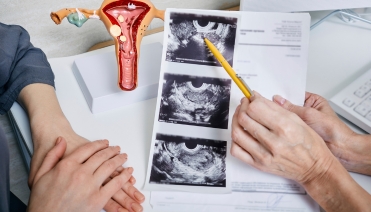Endometrial Cancer
Known as womb cancer or cancer of the lining of the uterus. The lifetime risk of a getting endometrial cancer is 1 in 100 (1%) and peak incidence is after menopause in 50s and 60s, hence it’s important for women in the menopause to be aware of the signs and symptoms. High BMI, diabetes and blood pressure also increase the risk of this type of cancer.
Uterine walls are very muscular and it takes a long time for the cancerous cells to spread beyond the uterus. This cancer is commonly detected at an early stage and is often cured by a hysterectomy.

Our Premium Clinic Locations
Discover our network of specialised gynaecology clinics across the UK, offering exceptional care in elegant, comfortable environments.
Harley Street
London Gynaecology at Harley Street provides world-class private women’s healthcare, fertility support, and advanced gynaecology services in...
Moorgate Clinic
London Gynaecology in the City of London offers expert women’s healthcare, same-day appointments, and advanced diagnostics in...
The Portland Hospital
London Gynaecology at The Portland Hospital offers comprehensive private women’s healthcare, surgery, expert consultations, and specialist treatments...
Other related conditions and treatments
Gynaecological Oncology
Gynaecological Oncology FAQs

Vulval Cancer
The vulva is the external part of the female genitalia, and although vulval cancer is rare, it is important to recognise and treat it early. Some...

Vaginal Cancer
Vaginal cancer is the rarest of the gynaecological cancers and is diagnosed in 250-300 women a year in the UK, with over 70% of diagnoses in...

Ovarian Cancer
Ovarian cancer is a type of cancer that begins in the ovaries, the reproductive organs that produce eggs and hormones such as oestrogen and progesterone. It...

Cervical Cancer
Cervical cancer arises from the cervix, the lower part of the uterus connecting to the vagina. In the UK, approximately 3,200 women are diagnosed with cervical...




